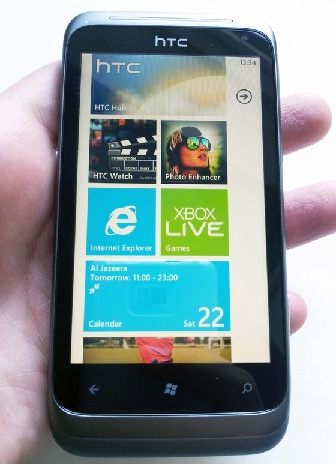It’s not your mama’s phone service any more. Many of us have virtually ditched land lines, making cell phones our lifelines to the world. When selecting plans and carriers, we want to do as Yoda would do and “choose wisely.”
Let’s clear some of the smoke and shatter some of the mirrors that make choosing cell phone plans akin to negotiating a lasting Middle East peace treaty.
Know the Players
There are four basic tiers of carriers. The elephants in the room are Verizon, AT&T, Sprint and T-Mobile. These are the big nationwide wireless carriers. Below them are large regional carriers like MetroPCS, Cricket and U.S. Cellular.

Below the regional carriers are companies such as Symmetry, Immix and North-Eastern PA Telephone Company, which cover even smaller, local areas. Finally you have some “virtual” carriers like Virgin, Boost and TracFone that don’t actually run their own networks but buy time from larger providers.
With the panoply of smaller carriers, you can often find plans with lower rates, especially if you aren’t a big user, don’t need the most advanced phone and almost always call within your local area. Because they don’t have nationwide systems, roaming fees can add up quickly if you spend a lot of time away from home.
The point here is not to get immediately sucked in by the multimillion dollar ad campaigns of the biggest providers. Slow down, make a realistic analysis of your usage and see if a smaller carrier makes sense.
Pre-paid or Post-paid Plans
Most cell phones users have post-paid plans. They receive a bill every month. On the downside, these plans require a two-year contract and impose loathsome “early termination fees” should you need to drop the plan. However, they also offer the best discounts on top quality phones.
A pre-paid plan can be an excellent choice for a user who doesn’t need the most advanced phone and who isn’t a major consumer of cellphone minutes or text messages. PC Magazine did an excellent article on pre-paid plans that are likely unknown to you.

Questions to Ask
Once you’ve sifted out the class of carrier you want to go with, there are some basic questions you need to ask. As they say, “the devil is in the details,” and these questions should help you sort out the details.
- Are there different rates for daytime and nighttime minutes? When does “nighttime” start and end?
- If all of the minutes in a plan are not used, do they rollover? If so, how long until they expire?
- What is the cost for minutes that go above the monthly allowance?
- Are there roaming fees, and, if so, how large is my home area and how much are the fees?
- What is the early termination penalty?
- How much do you save with a “family plan?”
Data and Text Message Plans
Phones aren’t only used to hear the sweet sound of your child’s voice when you’re away on a business trip anymore. Plans from the major carriers handle data transfers and text messages in a variety of ways.
It’s important to understand your usage and opt for “unlimited” text and generous data plans if you tend to bump up against the limits.

Another piece of the data puzzle is the level of service provided in your area. If you are a big data user – or will be within the two years of your contract – make sure your provider has excellent 4G coverage. The competing claims providers make and the coverage maps they publish are more helpful than an ancient Greek map of the world but not by much. Talk to friends who are heavy data users and see how they rate data transfer speeds.
Finally, don’t rush into signing a contract. Do your due diligence. Think about future plans. If those plans include a job relocation to Europe, you might want to consider a carrier whose phones use the global GSM system, namely AT&T and T-Mobile. In the same way, you might want to avoid a regional carrier if an out-of-state move or frequent business travel is a possibility.


